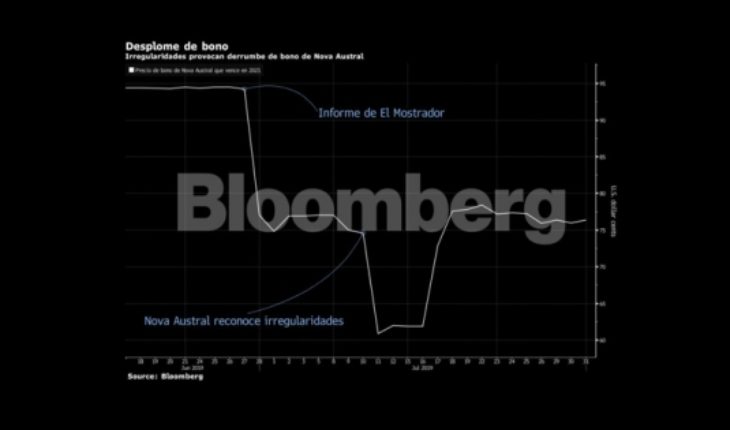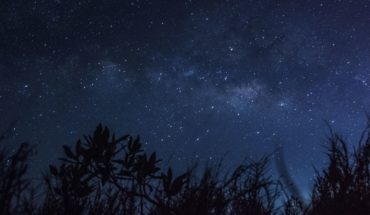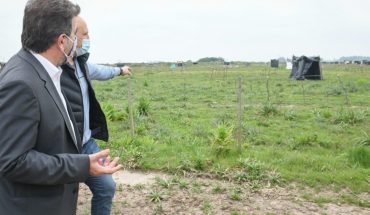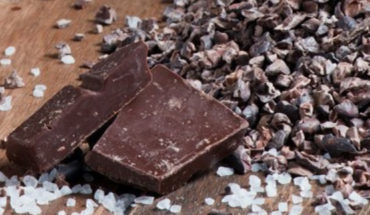Bloomberg’s report echoed the crisis that opened up following the research published by El Mostrador on the manipulation of fish mortality data by Nova Austral, a company that is presenting itself market leader for sustainable innovations.
“The regulator filed complaints (in reference to Sernapesca and the Superintendency of the Environment); members of Congress demand stricter regulation; Nova Austral’s top executive, Nicos Nicolaides, was set aside and the company’s foreign bond price plummeted to 60 cents per dollar,” are some of the impacts picked up by Bloomberg’s report. Added to this is the decision of the Aquaculture Stewardship Council, which suspended Nova Austral’s responsible production certification. Moreover, according to Bloomberg, Harold Meyer, a board member and director of Bain Capital (the company’s controller with Altor Funds) indicated in a video call in July that the investigation identified “unacceptable deficiencies”.
Bain and private equity firm Altor Funds took control of Nova Austral in 2014 after one of its companies bought it for $183 million. At Bloomberg they contacted both, but neither company responded to requests for comment.
A contradictory version
Despite this data, Nova Austral minimizes this damage. The company’s new finance manager, Nicolás Larco, came out to calm investors and assured that the loss of certifications will not affect their sales. Larco is a former Cencosud executive who last July joined the salmon company amid restructuring to deal with the crisis, when the company’s former CEO, Nicos Nicolaides, was removed from the firm.
According to a publication by the specialized media Salmon Expert, Nova Austral President Yngve Myhre and Larco gave a teleconference to their Oslo Stock Exchange investors on 16 July. In that instance, both executives argued that the outlook is positive for the company.
“Many of you have asked about the liquidity of the company, and I can tell you that the situation remains satisfactory, so we hope to meet all financial obligations. We also continue to be able to access the revolving credit facility as needed, so there is no problem from there,” said Larco, who also bet that in 2020 “the certifications of our salmon will be restored”.
Moreover, Yngve Myhre told investors that “Nova Austral supports its product and will continue to sell under the Sixty South brand in accordance with the relevant requirements of certification bodies, customers and authorities. We are committed to ensuring compliance with all applicable regulations and will continue to take all necessary steps to meet our commitments.”
An industry in the crosshairs
Bloomberg recalls that Chile, surpassed only by Norway in salmon production, has benefited from doubling exports over the past decade to US$4.7 billion last year. In fact, salmon is Chile’s main export apart from mining, and double-digit growth over the past three years is seen as key to diversifying a stagnant economy that relies too heavily on copper production.
However, several scandals have affected Chile’s burgeoning salmon industry in recent years, such as the escape of some 900,000 fish into the Pacific Ocean or the proliferation of algae in 2016, which environmentalists attributed in part to the cultivation of caused havoc on the Chilean coast.
Bloomberg’s report notes that while there is no indication that Nova Austral has sold sick salmon to retailers, the company’s “big commercial hook” is that its salmon do not contain antibiotics. Therefore, those free of antibiotics can get premiums of up to 30% compared to those who do in international markets. Salmon caught in their habitat, on the other hand, are worth up to four times more than those bred on aquaculture farms.
“Click on the Nova Austral website and images of cold Antarctic waters, snow showers and Patagonian coasts will appear. The company’s brand name, Sixty South, which can be found in Fresh Direct in New York and elsewhere in the United States, appears on the home page. “Pure salmon, of course,” he declares,” the report states.
“The saga also highlights another growing trend at a time when organic and ecological are in vogue among the world’s wealthy consumers: the temptation to take shortcuts and give products a look of sustainability is great. The practice is known as greenwashing or green washing. While Nova Austral did not do a green wash as such since after all the salmon do not have antibiotics, what they did is a close relative of that: falsifying data to make their organic product seem greener than it really is” Adds.
According to Bloomberg, the series of incidents that has occurred in the industry “threatens to give salmon producers a reputation they can’t afford, of cowboys who don’t take the rules seriously. While this new scandal has led to calls for stricter regulation, Nova Austral is likely to be fined only about $200,000”
translated from Spanish: Nova Austral overseas bonds fall after salmon mortality tamper
August 1, 2019 |





